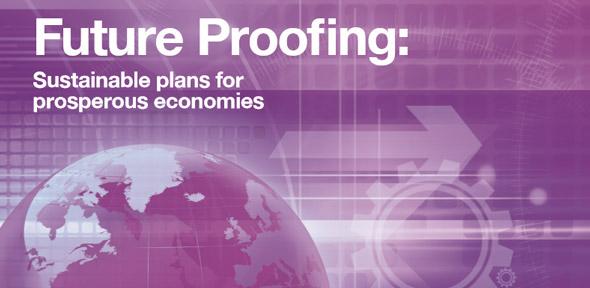
16 November 2016 – New policy briefing, Future Proofing: Sustainable plans for prosperous economies, from The Prince of Wales’s Corporate Leadership Group (CLG) in partnership with the Cambridge Institute for Sustainability Leadership and We Mean Business, highlights the importance of long-term policy planning to deliver the vision of the Paris Agreement on Climate Change and outlines key characteristics of business friendly long-term plans.
Tackling climate change will require a significant reassessment of long-term social, technological, and economical systems. Governments and business will need to work together to ensure a sustainable and prosperous future. To do this, policy and investment decisions taken today need to consider how a low carbon society will operate in the decades to come.
Whilst business and policy leaders may struggle to connect their immediate priorities to a 2050 timeline, CLG’s policy briefing launched today at a press briefing at COP22 is clear: long-term vision is a crucial tool for developing sensible and medium term-policies.
Speaking at the press briefing, report author, CLG Deputy Director Eliot Whittington said:
“Setting out a credible, comprehensive, flexible long-term plan for your economy offers countries the opportunity to create an investment prospectus that can unleash even more business energy behind a zero carbon transition. To make sense such long-term plans needs to deliver on the 2°C goal while taking into account adaptation and sustainable development needs. They should also be flexible enough to enable, support and respond to innovation without trying to predict the future. Finally, to be credible with business, long-term plans need broad political support and should be developed through transparent and accountable processes.”
The policy briefing provides an overview of the complementary relationship that can exist between government and business when it comes to policy, particularly on climate change. It includes example case studies from around the world such as EU’s 2050 Low Carbon Economy Roadmap, the UK Climate Change Act and Chile’s ‘Energia 2050’. It also outlines the three characteristics of business-friendly long-term plans, which need to be comprehensive, flexible and credible.
Creating plans for 2050 will stretch governance processes and challenge the boundaries of public policy. There are limits to how granular and detailed the plans can credibly be, and they need to be developed with the perspective that they will have to be revisited repeatedly as new learning and context arrives.




